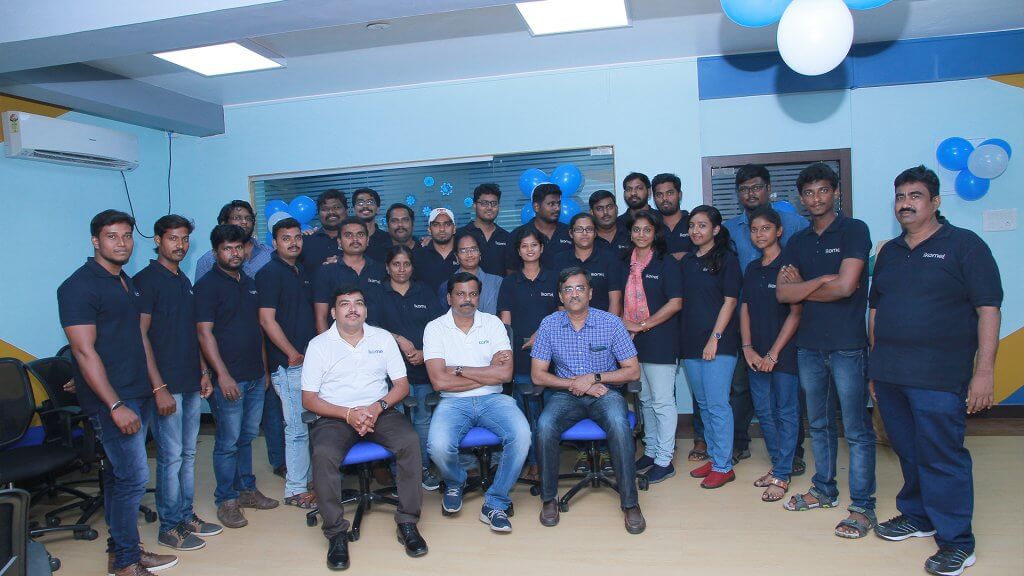
Usually, when an individual or organization plans to implement new software or system into their infrastructure, preparation is necessary, and that’s especially true when it comes to ERP systems.
Enterprise resource planning, also known as ERP, is a system that consists of a variety of modules that can help with numerous business operations. For example, instead of having only one function like invoicing or automation, an ERP system may consist of numerous models with each providing different features. As such, most enterprises look forward to its implementation.
But as powerful as it may be, the utter complexity of ERP systems tends to be the main reason why organizations often fail to implement them properly, yet that doesn’t have to be the case for you.
Below are a few things you need to do so you can ensure a successful ERP system implementation.
1. Get Hold of An ERP Consultant
First off, you must remember that implementing an ERP system isn’t something you can handle alone, especially if this is the first time your company will undergo such a system implementation. Hence, the help of an ERP consulting services company would come in quite handy to ensure a hassle-free software deployment.
Not only can they help your enterprise bring ERP systems and ideas to fruition, but they can also organize training and onboarding to make sure your employees know how to handle the ERP system.
The following are a few more examples of things an ERP consultant can help with:
- Impart unbiased analytics and insights;
- Facilitate ERP implementation;
- Act as the project manager; and
- Provide ongoing support.
An ERP consultant is particularly helpful if you have yet to assign a team in charge of the project.
2. Establish a Team In Charge
The project team is one of the keys to ensuring a successful ERP implementation. As such, knowing how to build a team in charge can be of great help in the process. So, how do you build a team?
For starters, instead of seeing the team collectively, you must think of each member as an individual with unique roles. On that note, here’s a closer look at the roles comprising an ERM implementation team:
- Executive sponsor;
- Project manager;
- Partner;
- Technical architects;
- Analysts; and
- End users.
Once you’ve assigned these roles to different personnel, you should also provide ongoing support to the team. It can also help if you take steps to empower them for their efforts such as through incentives or rewards.
Unfortunately, as important as establishing a team may be, not all organizations have an adequately able workforce to fill for each role. If that’s the case, you may need to prepare a training program first.
3. Prepare a Training Program for Your Employees
As stated earlier, an ERP system is a lot more complex than your typical software. It consists of more complex modules; therefore, it can be challenging to grasp the system as you’ll have to learn about more topics and instructions.
As such, before implementing the system, it’s advisable that you first prepare or organize training for your workers to provide them with the necessary skills to properly use the system.
Below are some examples of syllabus or topics that can come in quite handy for your training program:
- Customer Relationship Management;
- Financial Accounting;
- Information Technology;
- Management Accounting;
- Production Planning;
- Sales and Distribution;
- Solutions Management; and
- Supply Chain Management.
Take note that you don’t necessarily have to include all these topics. The skills your employees will need to successfully implement ERM largely depend on the modules chosen for your ERM system.
4. Select Which Modules to Include In the System
The main difference between an ERP system and the typical business management software is that the former may consist of more than one module. The following are examples of modules you can find in an ERP system:
- Finance;
- Procurement;
- Warehouse management;
- Manufacturing;
- Supply chain management;
- Workforce management;
- Invoicing; and
- Automation.
Typically, an organization configures the modules included in their ERP system depending on what they need. Some go all out and include many, while others go for only a few. Regardless, before you implement your ERP system, you must select your system’s modules, as they’ll affect how difficult implementation will be and what kind of training you must provide to your employees.
5. Decide On the System Specifications
Much like most programs, an ERP system consists of numerous specifications that change how the system works. Under each specification is a number of options, each with its respective advantages and disadvantages.
Prior to the implementation of an ERP system, it’s crucial that you decide on these options, as it’ll affect how the implementation goes. The following are a few examples of these specifications:
- Model
ERP implementation can either revolve around the cloud or on-premise. A cloud ERP means the tools and technologies will be accessible through the cloud, while on-premise ERP refers to a model where the technologies are maintained and accessed at a physical office. The former has a more affordable price, but it can be exposed to cyber threats.
- License
One of the many steps to implementing ERP is selecting a provider. Naturally, you have to pay for their license, but you must decide whether to go with a subscription-based or a one-time payment option.
- Number of Users
An ERP system can only house a limited number of users. And it’s up to you what that number would be. It can be tens, hundreds, or even thousands, depending on your organization’s size.
- Integration
Although an ERP system is undoubtedly handy, there might be cases where you still need to maintain your existing business tools. In that case, before you implement the ERP system, you must first make sure the software is compatible with your current technologies and software infrastructure.
6. Centralize and Backup the Necessary Data
Finally, right before deploying the ERP system, you must centralize all the necessary data. Doing so would make it much easier to migrate your operations into the new ERP system. It’d help a lot of you can back up the data in case of unforeseen circumstances that may cause file corruption. A back up copy of your company’s most crucial information can be very handy.
Furthermore, there may be existing laws and industry regulations your business may need to comply with before the selection and adaptation of an ERP system. It’s advised to look into them beforehand.
Wrap Up
As eager as you may be, nothing good will come from implementing an ERP system in a hurry. Not only are you increasing the possibility of errors, but you’re also plunging into the process without any preparation. So, before you get right into it, you must first accomplish the necessary steps to prepare for the implementation, and this article should come in quite useful in that regard.



















